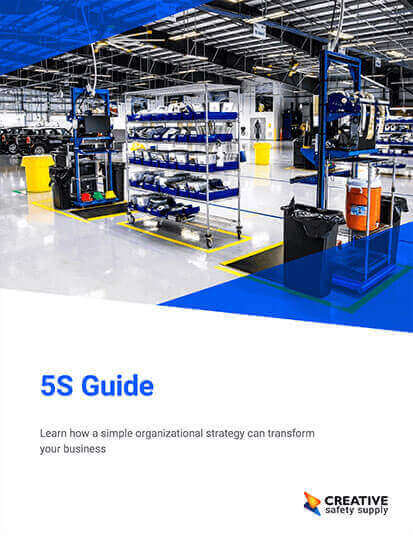
Labeling is essential in any facility no matter the industry, for a wide variety of reasons. From warning of potential hazards to reminding workers to keep their areas clean, labels and other types of visual communication enhance the way your business operates and ensures that people have the information they need to work efficiently and safely. Proper labeling can benefit every aspect of your business, but there are three main reasons why implementing a labeling system is so important:
Compliance
Every facility must adhere to applicable laws and regulations. From offices to warehouses to factories, it’s guaranteed that your business will have certain occupational standards that it needs to meet. Labeling is often required by OSHA, ANSI, NFPA, and other federal or international agencies. If your facility has pipes, for example, these pipes should be marked so workers understand the contents of each pipe and the direction of flow.
Labeling is just one of the many facets involved with regulatory compliance and is an important aspect to ensuring safe and healthful working conditions, which is required by the Occupational Safety and Health Act.
Safety
Labels are often required by governing agencies because communication is integral to keeping workers informed and safe. Labels help people stay safe at work through two central ways: by providing information on occupational hazards, and by highlighting the location of emergency exits and equipment. For example, PPE labels let workers know what type of protective equipment they need before they operate machinery and that PPE is required to protect themselves from heat, sharp objects, or loud noise.
Labels can also designate emergency exits and indicate the location of supplies such as first aid kits and eyewash stations, so people can act quickly and correctly during an emergency. Knowing where to go and what to do can help cut response time down even by a few seconds, which in some cases may save lives.
Efficiency
Labeling helps improve the organization and efficiency of your workplace. You can mark where items should be stored, help workers easily identify tools, and make supplies very easy to find. Something as simple as labeling a bin for used batteries prevents confusion and waste. Labels can also remind workers to keep their work areas clean and organized, which helps to eliminate debris or clutter. In fact, labeling is an important aspect to practicing 5S, Kaizen, and other Lean manufacturing methodologies that ultimately help enhance the performance, efficiency, and profitability of your company.
Every facility should incorporate a visual communication system into daily operations. Whether you need to stay compliant with ANSI pipe marking regulations, provide a warning for a noise hazard, or remind workers to practice continual improvement, labeling can bring a variety of benefits to your business.
Similar Questions
- What are the Different Types of Industrial Labels?
- What is a direct thermal printer?
- How do thermal printers work?
- How are labels made?

